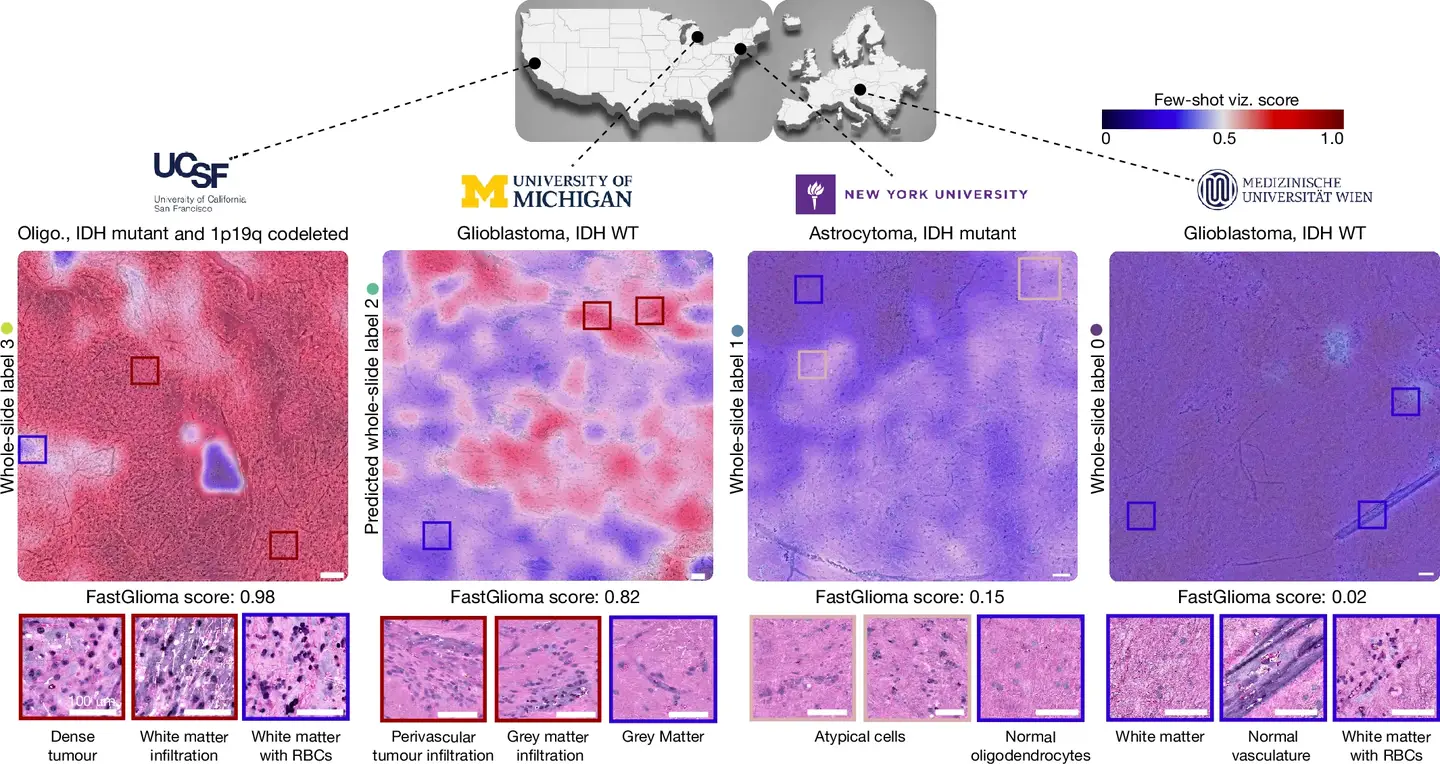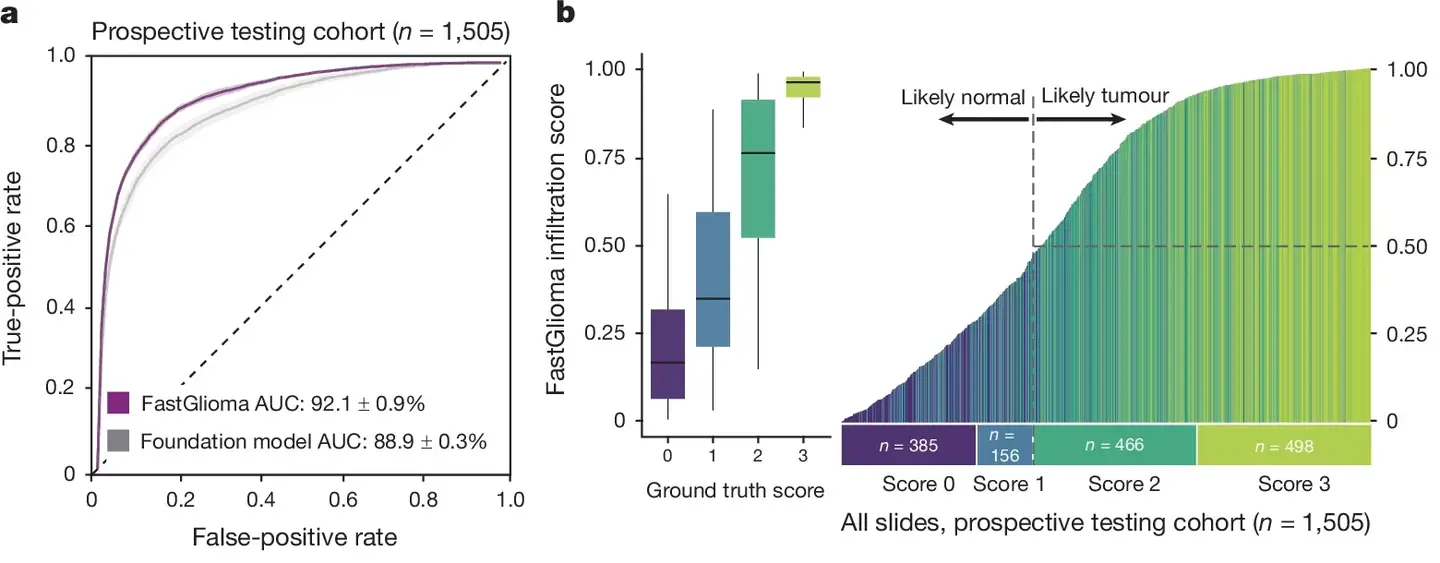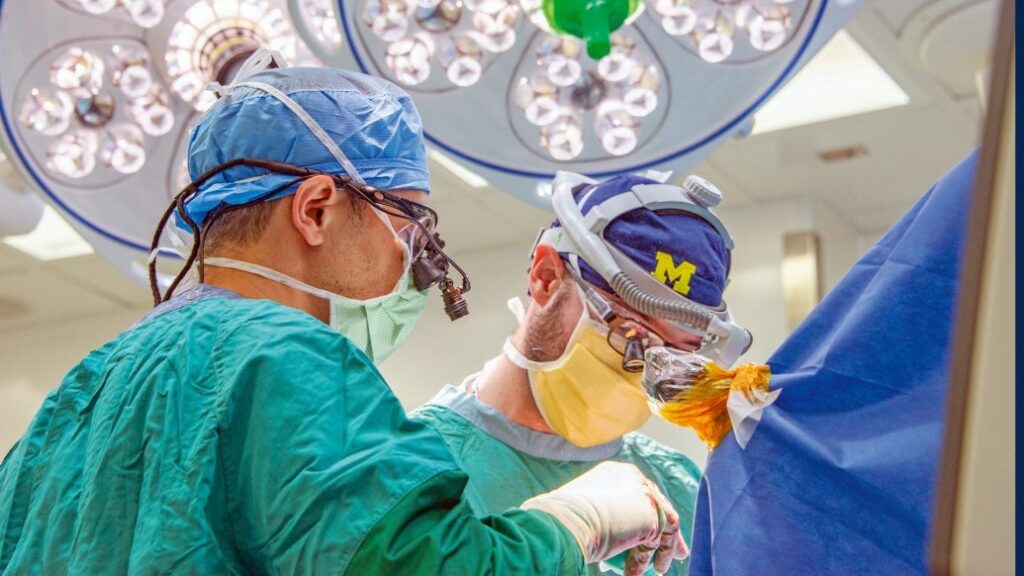Revolutionizing Cancer Surgery: The Game-Changing Impact of FastGlioma
For over a century, the focus on detecting tumor infiltration during surgery has been paramount, especially in complex cases involving brain and solid tumors. Despite advancements in medical technology, the challenge of residual tumors—pieces of cancerous tissue left behind after surgery—continues to complicate treatment and diminish patient prognoses.
Failure to remove all tumor tissue can lead to worse outcomes, including recurring cancer and diminished quality of life, wracking up costs beyond $1 billion annually in the U.S. alone for follow-up surgeries and treatments. But what if there was a way to drastically improve surgical outcomes in real-time?
Enter FastGlioma, an innovative artificial intelligence (AI)-based diagnostic system set to transform the landscape of neurosurgery. Developed to instantly enhance the management of diffuse gliomas, this tool allows for precise tumor resection in a matter of seconds.
Dr. Todd Hollon, a neurosurgeon at the University of Michigan, comments, “FastGlioma is not just a tool; it’s a potential game-changer for how we tackle diffuse gliomas. It provides immediate feedback about tumor infiltration, allowing us to minimize the chance of leaving residual tissue behind.” This is crucial, especially given that tumors can often look deceptively similar to healthy brain tissue.
Traditional methods, like MRI imaging and fluorescent agents, often fall short, varying in effectiveness by tumor type and availability. FastGlioma overcomes these challenges with advanced optical microscopy and AI models trained on extensive datasets.
Utilizing a technique known as stimulated Raman histology, this system can analyze fresh surgical specimens without any preprocessing—delivering results in as little as 10 seconds and achieving a remarkable 92% accuracy in identifying residual tumors.
Dr. Shawn Hervey-Jumper of UCSF states, “FastGlioma is a bold step away from traditional surgical methodologies. It enhances our ability to pinpoint microscopic tumor infiltration swiftly, making it particularly valuable in resource-limited settings where access to complex imaging tools may be restricted.”
Traditional techniques miss residual tumors nearly 25% of the time; however, FastGlioma reduces this rate to a mere 3.8%. This leap in accuracy could lead to better surgical outcomes, drastically lowered recurrence rates, and enhanced survival for patients.

FastGlioma utilizes visual foundation models similar to those employed in technologies like ChatGPT and DALL-E. These models, trained on over 11,000 surgical specimens and 4 million unique microscopic views, ensure that the system is adaptable across diverse healthcare settings and patient populations.
As promising as it is for gliomas, experts believe the potential of FastGlioma stretches to other types of brain tumors, including pediatric forms like medulloblastoma and ependymoma, among others. The technology’s adaptability could open doors for many more patients.
Dr. Aditya S. Pandey, chair of Neurosurgery at U-M Health, asserts, “These encouraging results illustrate the effectiveness of visual foundation models like FastGlioma for medical AI and their potential application across various forms of human cancers without extensive retraining.”

As we look to the future, the Lancet Oncology Commission emphasizes the necessity for innovative strategies in cancer surgery, particularly in enhancing surgical margins. FastGlioma embodies this approach, providing a cost-effective, accessible solution that bolsters surgical precision on a global scale.
Plans are already underway to adapt FastGlioma for use in other cancer types, including lung, prostate, breast, and head and neck cancers. Success in this endeavor could herald a transformative chapter in surgical oncology, integrating AI-driven tools to enhance patient outcomes and reduce healthcare costs effectively.
FastGlioma isn’t just about technology—it’s about improving lives. By blending revolutionary AI with essential surgical techniques, this system holds the promise of better surgical outcomes and higher quality of life for many battling cancer.
The AI Buzz Hub team is excited to see where these breakthroughs take us. Want to stay in the loop on all things AI? Subscribe to our newsletter or share this article with your fellow enthusiasts.




